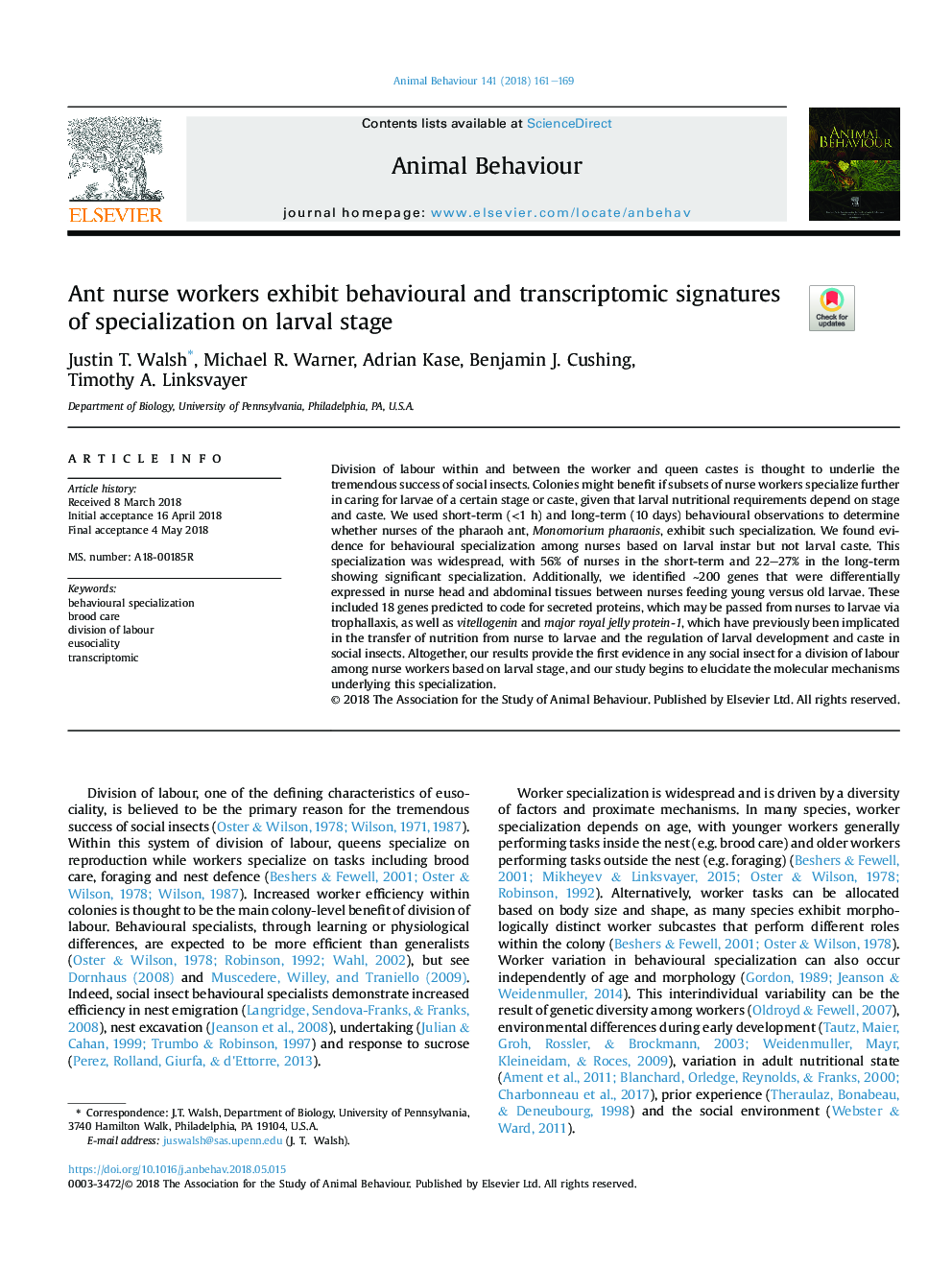| Article ID | Journal | Published Year | Pages | File Type |
|---|---|---|---|---|
| 8488497 | Animal Behaviour | 2018 | 9 Pages |
Abstract
Division of labour within and between the worker and queen castes is thought to underlie the tremendous success of social insects. Colonies might benefit if subsets of nurse workers specialize further in caring for larvae of a certain stage or caste, given that larval nutritional requirements depend on stage and caste. We used short-term (<1 h) and long-term (10 days) behavioural observations to determine whether nurses of the pharaoh ant, Monomorium pharaonis, exhibit such specialization. We found evidence for behavioural specialization among nurses based on larval instar but not larval caste. This specialization was widespread, with 56% of nurses in the short-term and 22-27% in the long-term showing significant specialization. Additionally, we identified â¼200 genes that were differentially expressed in nurse head and abdominal tissues between nurses feeding young versus old larvae. These included 18 genes predicted to code for secreted proteins, which may be passed from nurses to larvae via trophallaxis, as well as vitellogenin and major royal jelly protein-1, which have previously been implicated in the transfer of nutrition from nurse to larvae and the regulation of larval development and caste in social insects. Altogether, our results provide the first evidence in any social insect for a division of labour among nurse workers based on larval stage, and our study begins to elucidate the molecular mechanisms underlying this specialization.
Related Topics
Life Sciences
Agricultural and Biological Sciences
Animal Science and Zoology
Authors
Justin T. Walsh, Michael R. Warner, Adrian Kase, Benjamin J. Cushing, Timothy A. Linksvayer,
